
Celebrating 7 years of The Narwhal — and gearing up for the next 7
Between a fresh take on engagement and our new life on video, our team is...
Days before Christmas, Ontario’s energy industry was stunned by a massive decision and a fiery response.
On Dec. 21, 2023, at around 6 p.m., the Ontario Energy Board — an independent regulator, or “energy court” as one expert described it — released a decision that would prevent Enbridge Gas from passing the cost of connecting new homes to natural gas onto homeowners.
The board said Enbridge Gas had not “provided an adequate assessment” of the risk of natural gas becoming obsolete as communities look to cleaner sources of power to reduce emissions that worsen the impacts of the climate emergency.
The 147-page decision was astonishing. “It’s a watershed case,” Ian Mondrow, an energy lawyer with the law firm Gowling WLG in Toronto, told The Narwhal. “It is the boldest, most important decision to date on energy transition and the future of natural gas.”
This was the first time the board has considered how the push toward clean energy could impact natural gas, Mondrow said. Its decision came after a yearlong process that involved tens of thousands of pages of documents analyzed in public hearings, and dozens of interviews with experts across the industry. In the end, the board concluded developers, not homeowners, should bear the cost of gas infrastructure — a burden that might push them to consider more eco-friendly, economical alternatives such as heat pumps to cool and heat buildings.
“The [Ontario Energy Board] is not satisfied Enbridge Gas’ proposal will not lead to an overbuilt, underutilized gas system in the face of the energy transition,” the board wrote.

Some 15 hours later, on December 22 at 9:30 a.m., Energy Minister Todd Smith responded in a three-paragraph statement saying he was “extremely disappointed” in the board’s decision. He believed it “could lead to tens of thousands of dollars added to the cost of building new homes” and “slow or halt the construction of new homes, including affordable housing.”
“We will not stand for this,” Smith said in the statement, which focused more on housing policy than energy regulations. “I will use all of my authorities as minister to pause the Ontario Energy Board’s decision. At the earliest opportunity, our government will introduce legislation that, if passed, would reverse it, so that we protect future homebuyers and keep shovels in the ground.”
The heavy-handed language of Smith’s response was also astonishing. “The speed of the response and the pointedness of the response was very surprising,” Mondrow said. “It was very curious.”
That same day, Enbridge Gas challenged the decision at Ontario Divisional Court arguing the board went beyond its mandate. The company believes instead of implementing Ontario’s existing energy policy, the board “established” a brand new policy that threatened to “eliminate” natural gas from the province.

The Narwhal spoke to five energy experts and lawyers who all said the minister’s signal to override an independent regulator is extremely concerning, as is his underlying position that housing policy takes precedence over energy policy. The minister did not respond to questions from The Narwhal.
Energy policy is complex and impacts every aspect of daily life in Ontario. Natural gas is the most common heating source across the province — and despite its name, the fossil fuel is a significant contributor to the climate crisis, as it is made up mostly of methane, a heat-trapping chemical compound and powerful greenhouse gas.
Now, the province’s energy board, energy minister and one of Canada’s largest energy giants are in a fight over whether Ontarians should continue to pay to link their homes to natural gas, when government commitments and science call for weaning off of fossil fuels.
Here’s what you need to know before the Ontario legislature returns in February.
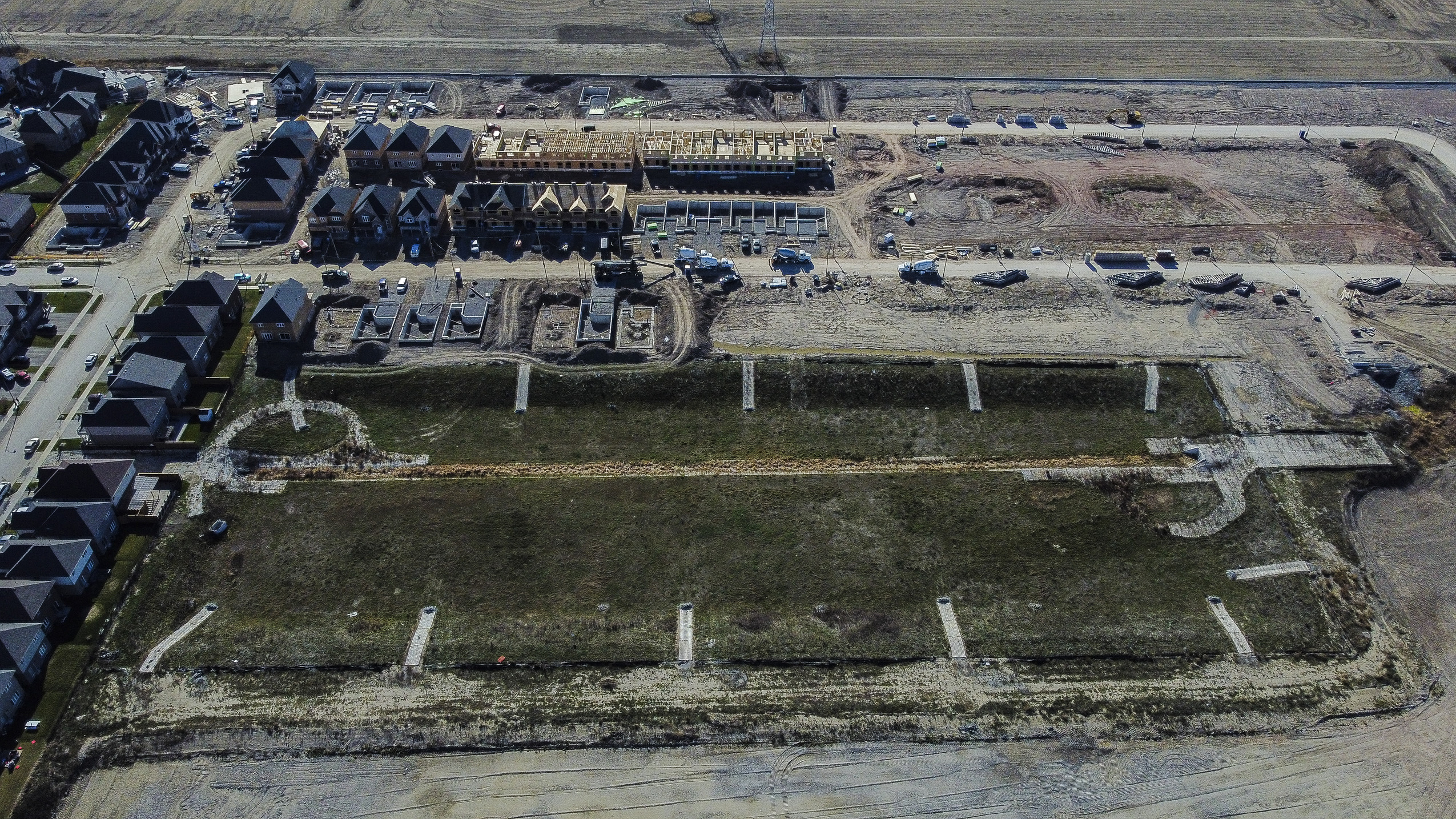
Any energy company that wants to change the rate it charges customers for connecting to its source of power has to justify it before the Ontario Energy Board. The board has regulated the natural gas industry since 1960 and the electricity sector since 1999. Its job is to implement policy set by the provincial government and to keep industry accountable, ensuring decisions are financially responsible and in the public interest.
Enbridge Gas is accountable to the board since it has a near-monopoly over gas distribution in the province. The board has to approve its major plans and budget, which includes assessing whether the company’s plans for making and spending money are fair and beneficial for its customers.
In 2023, the fossil fuel giant, most known for its natural gas pipelines, proposed an increased rate for new customers to help cover its approximately $14-billion plans to expand access to natural gas across Ontario. A major part of its submission focused on the company’s approach to the energy transition: according to Enbridge Gas, increasing natural gas in the short-term facilitates an “orderly” energy transition, providing “cost-effective, secure, reliable and resilient energy” for customers as the industry moves towards low-emissions power.
Enbridge Gas showed the board internal studies on its plans to replace gas drilled from the earth with what’s known as renewable natural gas, which is also methane-heavy but collected from the gases created by decomposing matter in places like landfills, organic waste collection sites or livestock farms. Enbridge Gas also outlined plans to reduce emissions via new technologies not yet proven effective, including carbon capture technology and hydrogen fuel.
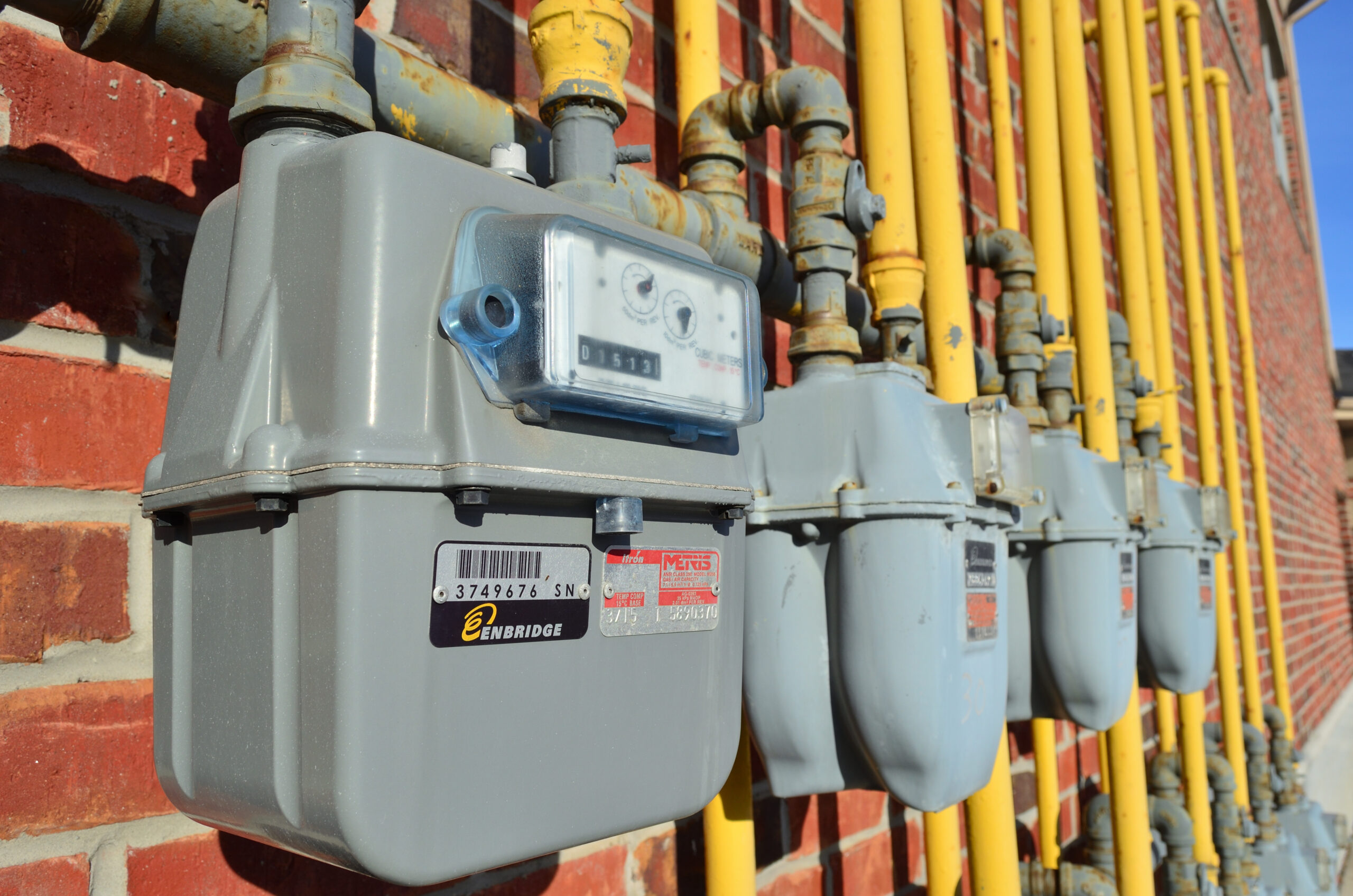
In a lengthy decision, the three board commissioners on the panel considering this case identified two major themes. First, that climate change is forcing an energy transition that will likely make natural gas essentially useless, or “a stranded asset” — financially unviable or socially unacceptable as lower emissions energy sources increase and improve. Second, that “the usual way of doing business is not sustainable.”
The board found there was enough evidence to show homeowners would move away from natural gas sooner than later, and Enbridge Gas had not made “meaningful consideration” of this transition or the government climate change commitments behind it. The company plans to continue to charge customers for 40 years for natural gas hookups and expand gas infrastructure. But government timelines to achieve emissions reductions are shorter: Ontario’s goal is to lower emissions to 30 per cent below 2005 levels by 2030, which is seven years away, while the federal government is pushing for net-zero emissions by 2050, which is 27 years away.
“This is not logical,” the board said. In fact, it wrote, this outlook is harmful to customers, since homeowners would first pay to be hooked up to gas, then again to install new, cleaner connections such as heat pumps.
“This is just one of the reasons why this case was so significant, because of just a huge contradiction in what Enbridge was asking for and the direction that the world, including Ontario, is heading towards,” lawyer Kent Elson told The Narwhal. He represented the advocacy organization Environmental Defence when it intervened in the case before the board.
The board is blunt that all signs suggest Enbridge Gas’ new infrastructure would not be “used and useful,” and the company had not “accounted appropriately” for this risk. “The record is clear that Enbridge Gas has failed to do so,” the board wrote, finding the company did not prove expanding natural gas infrastructure and connecting new homes to it would be cost-effective in the long term.
“The [Ontario Energy board] is left with the clear conclusion that the energy transition is underway, it creates a risk of stranded asset costs, and that Enbridge Gas has not addressed this in any meaningful way,” the board’s decision concluded.
The board decided that, as of 2025, Enbridge Gas would have to ensure developers cover the full cost of connecting new homes to natural gas. It also reduced Enbridge Gas’ spending budget on new pipelines by $250 million, or 17 per cent, and told the company to focus on repairing existing pipelines instead of rebuilding them.

Not really. In fact, it might help reduce costs.
The board’s primary focus is implementing provincial energy policies, which have recently undergone a lot of change. Last summer, in the midst of the hearings, the Doug Ford government released an energy strategy identifying the need for new sources of clean energy: Ontario will soon face a supply shortage and excess demand, as households move away from fossil fuels and towards electricity.
Along with these new policies, the board also considered the Ford government’s stated goal of building 1.5 million homes by 2031 with a focus on increasing affordable housing.
“Affordable housing has two components — the cost to buy the house and the cost to operate the home. Both are important. A home may have what appears to be an affordable purchase price, but that price advantage is diminished if the cost to operate the home, including the home’s energy costs, are higher than they need to be,” the board said.
Historically, the cost of connecting new homes to natural gas has been passed to customers, spread out over 40 years of ownership. The board decided this was “unreasonable” with the energy transition underway. It thinks this cost should be paid in full and upfront by developers — which used to pay for water and sewer connections before the Ford government passed those costs on to taxpayers — to ensure builders are “fully incented to choose” climate resiliency and long-term affordability for customers.
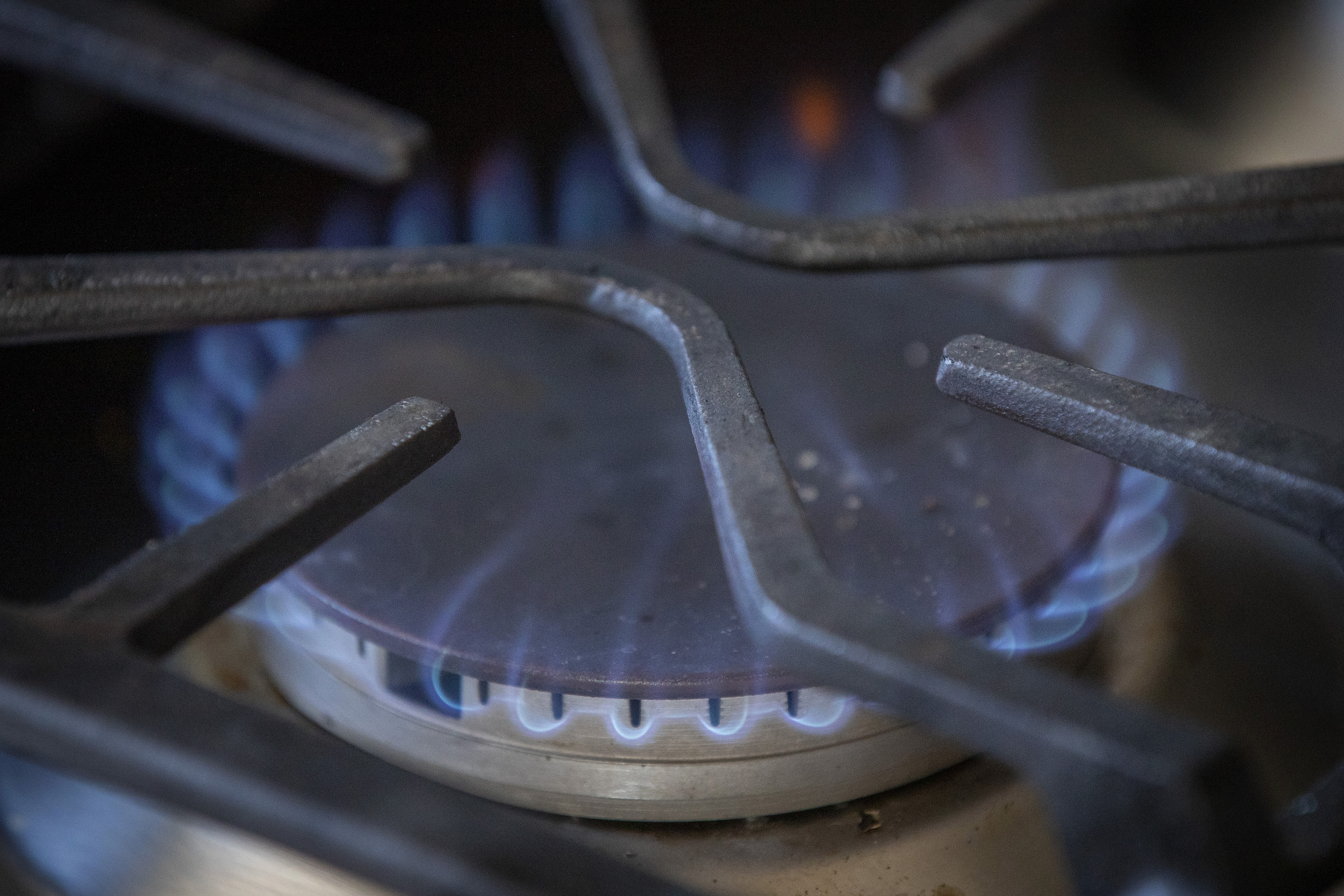
One of the board’s commissioners didn’t agree with the decision, arguing evidence the energy transition would happen so quickly was lacking and “the risk of unintended consequences to Enbridge Gas, its customers and other stakeholders increases given the magnitude of this conclusive change.”
“Is the scenario of no new gas connections, replaced by construction of all-electric developments, feasible? For example, would electricity generators, transmitters, distributors … be able to meet Ontario’s energy demands in 2025? I don’t know,” the commissioner wrote in a partial dissent.
The dissenting commissioner argued Enbridge should be able to charge homeowners for new connections for at least another 20 years. This would be “a measured, incremental approach” to mitigating the risk of stranded assets and also signal “a significant evolution” in the board’s approach to the energy transition, they wrote.
But it would also increase homeowners’ costs in the short term, compressing the time period they have to pay for connection infrastructure.
Elson said the board’s decision is about lowering energy bills. “If you encourage developers to put in gas by letting them defray all of those costs off the bat, then not only are you shackling customers with unnecessarily high energy costs upfront and for many years, but you’re also forcing them to incur retrofit costs down the road to then switch over from fossil fuels to zero-emitting equipment,” he said.
“There is no way that it is better for customers to help developers put gas into new developments,” Elson added. “So this is a pro-affordability, pro-consumer decision.”
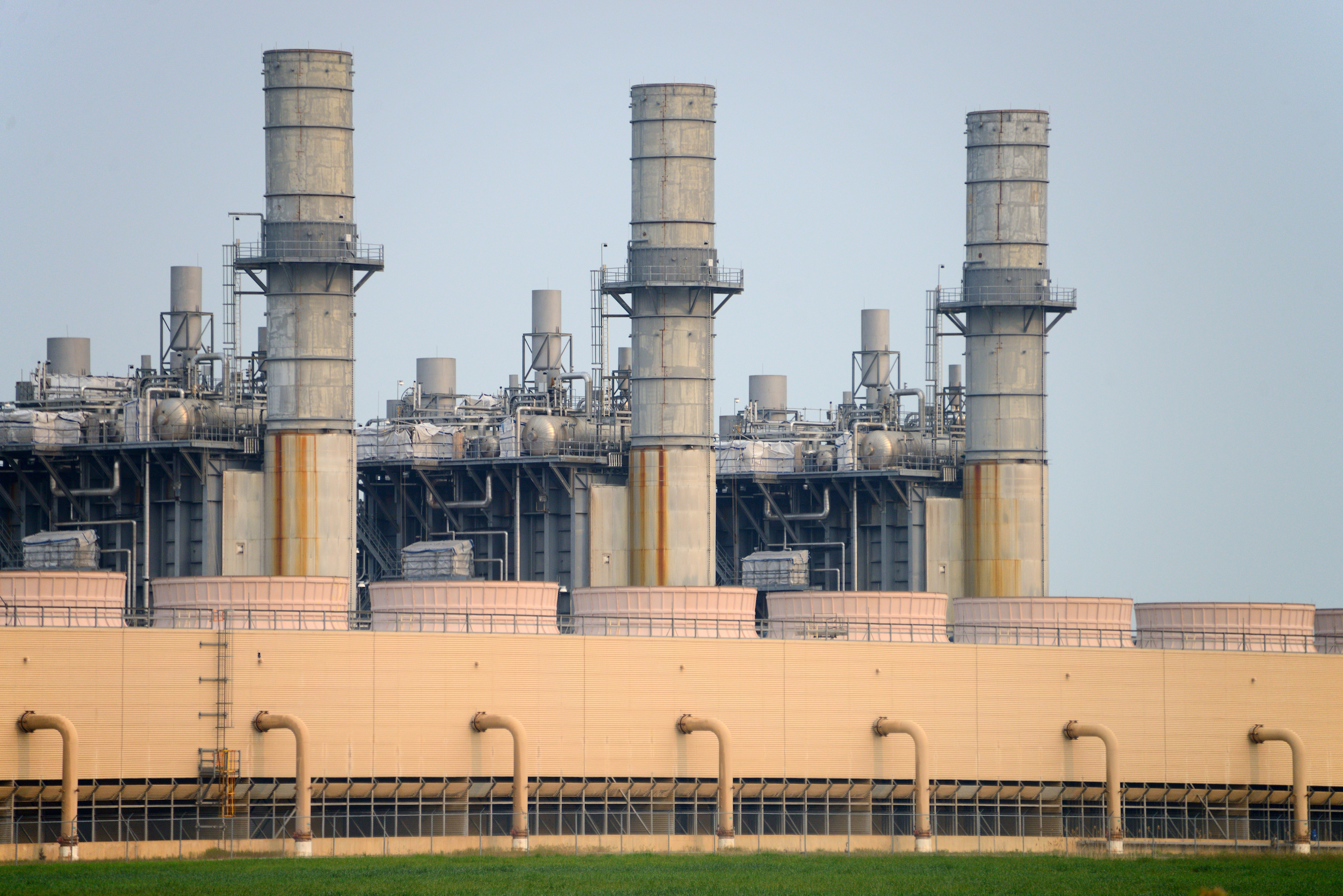
The board’s decision explicitly and repeatedly mentions broad “support for electric heat pumps as an alternative to gas heating equipment,” finding the operating cost of a new all-electric house that uses a heat pump is lower than a new house on gas. This was also noted by the Auditor General of Ontario in a November 2020 report on the value of emissions reduction projects. That report referenced the board’s approval of Enbridge Gas’ $10-million pipeline proposal to connect new customers in North Bay. Existing ratepayers shouldered most of the cost of the project, amounting to a subsidy of about $65,000 per new home connected. Despite the subsidy, the auditor general found these new homeowners were set to pay higher heating bills than if their homes had been equipped with electric heat pumps.
The board adds another example to illustrate this cost disparity. Right now, Enbridge Gas operates a retrofit program in Ontario through which the federal government gives financial incentives to homeowners who install a heat pump. But the costs of these retrofits are greater than installing pumps at the time new homes are built, the board finds.
Enbridge Gas disagrees. The company told The Narwhal the board’s decision will increase the cost of building a new home by thousands of dollars “and developers will have to bear millions of dollars in carrying costs until the homes are sold to buyers.”
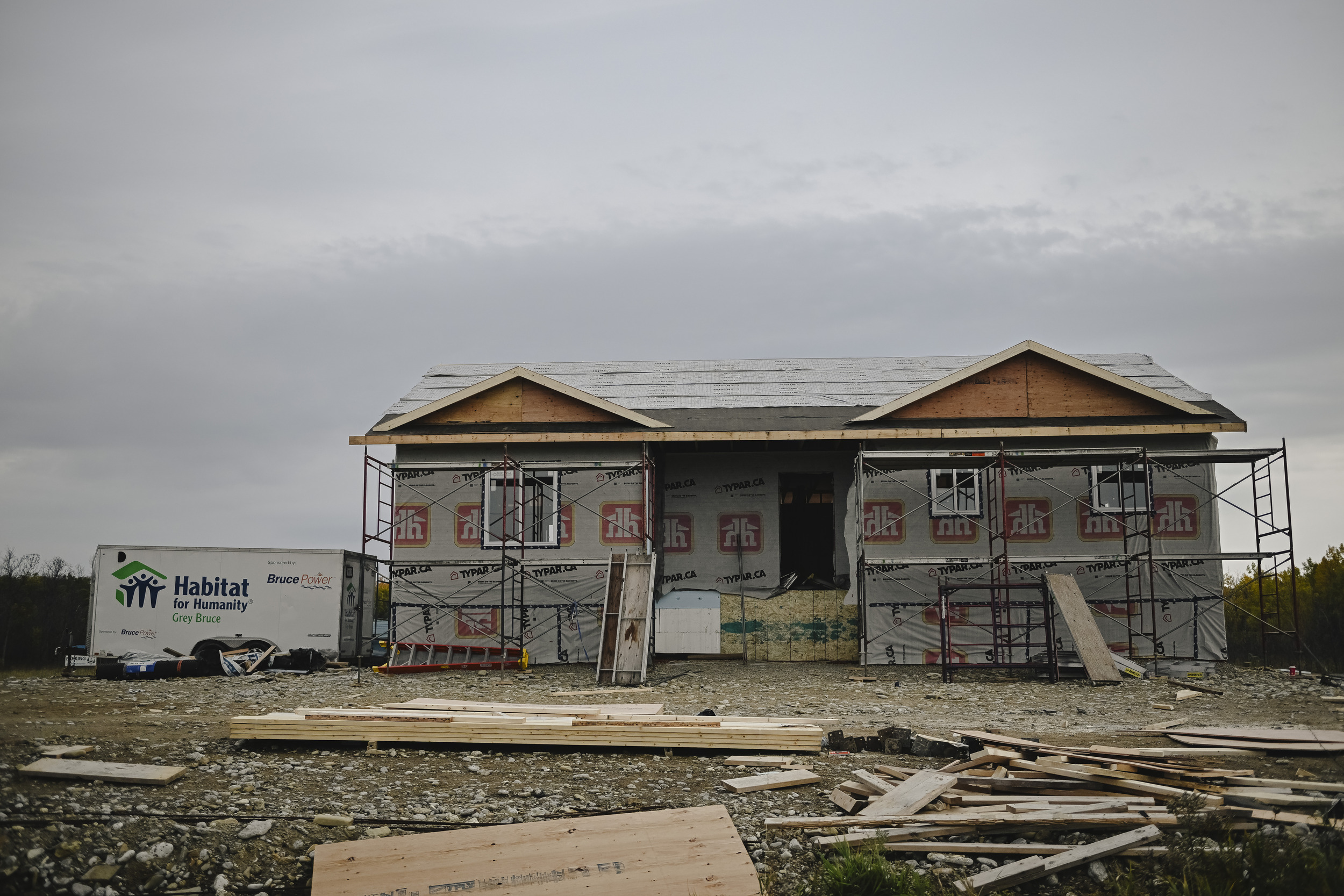
The Ford government has long been a proponent of natural gas. After cancelling a series of green energy programs in their first year in office, the Progressive Conservatives committed to expanding natural gas. As minister, Smith has allocated millions of dollars to support new Enbridge Gas-built connections across rural Ontario, including in Prince Edward County, South Glengarry and Perth County. The government is also looking to expand gas power plants.
But Ontario presently doesn’t have an energy transition plan that determines the role of the fossil fuel in the province’s future. There is no timeline for a phase-out. After a two-year study, a Progressive Conservative-appointed energy transition panel recommended just last week that the government establish a clear policy roadmap and timeline on this soon.
The minister’s three-paragraph statement does not address any of this. Nor does it offer evidence to back up his claims the Ontario Energy Board’s decision would increase the cost of new homes, or slow the pace of building. In fact, preliminary calculations by academics suggest increased costs for developers would be marginal.
Even if the government successfully overrode the board’s decision, that would not make housing more affordable. Many factors play into the cost of building homes, including materials and labour.
The board’s decision is complicated and thorough, energy experts and lawyers told The Narwhal. But the tone with which the minister responded was brash and possibly harmful.
“This is a complex area and details are important,” Elson said. “Governments are good at and obligated to make policy. Implementing it takes a lot of careful work. In the energy sector, that’s what the [Ontario Energy Board] is good at.”
“People should be concerned about the government trying to make detailed rules rather than overall policy,” he added. “The government’s policy is affordable housing. The [Ontario Energy Board] considered it and came up with a change to a regulatory rule that they felt respects that policy.”
“The government needs to prove why it doesn’t, or respect the decision.”
Overriding an independent regulator is a big deal. The minister’s signal to do so could undermine the authority of the Ontario Energy Board and open the door to every energy company that wants a decision changed. That could add to the sense of energy policy uncertainty in the province, which will make it difficult for Ontario to grapple with looming energy challenges.
“The danger is when politics enters into what should be independent balanced public regulation,” energy lawyer Ian Mondrow said.
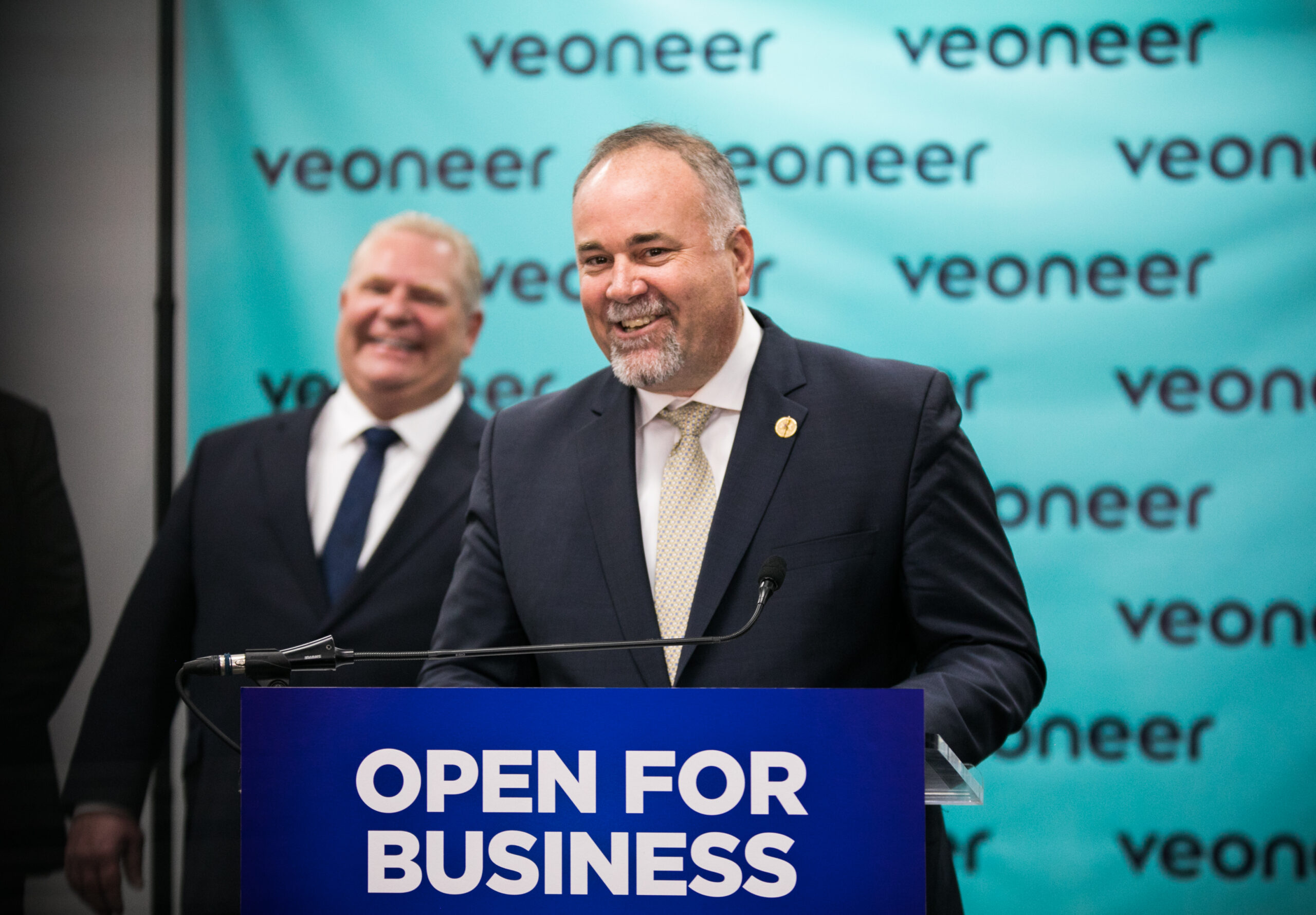
In an email to The Narwhal, company spokesperson Leanne McNaughton said Enbridge Gas believes the board’s majority decision “conveys strong bias” against natural gas and “sets a course to eliminate it from Ontario’s energy mix.” McNaughton said the board “overstepped its jurisdiction with a decision that effectively sets energy policy.”
Citing heavily from the partial dissent from one of the board members, Enbridge’s 13-page legal challenge also argues there is “no evidence” that “any other jurisdiction” is making similar moves. But plenty of places are turning away from natural gas in new development to curb emissions. Last year, Seattle and New York state banned new natural gas connections. Last September, Prévost, Que., voted to ban natural gas in new buildings. As of July, Nanaimo, B.C., will no longer allow new buildings to connect to natural gas. Montreal will do the same for new buildings of up to three storeys come October.
The lack of a forward-looking energy policy in Ontario is why the board’s decision is “not a viable solution for Ontario” McNaughton, Enbridge Gas’ spokesperson, told The Narwhal in an email. She added the company was seeking to provide natural gas to Ontarians “at a reasonable cost while taking measured steps” towards a clean energy future.
Enbridge Gas is obliged to implement the board’s decision and is “facing some difficult choices” as a result, McNaughton said. The board’s order “will significantly constrain” the company’s ability to invest in energy projects, she added, hampering its ability to respond to the increased energy needs of the greenhouse sector, rural communities and large industries as they move away from coal and oil.
That’s why Enbridge Gas supports Smith’s move to reverse the decision, McNaughton said, and has asked the court to give the company a new hearing with a new panel of the board.
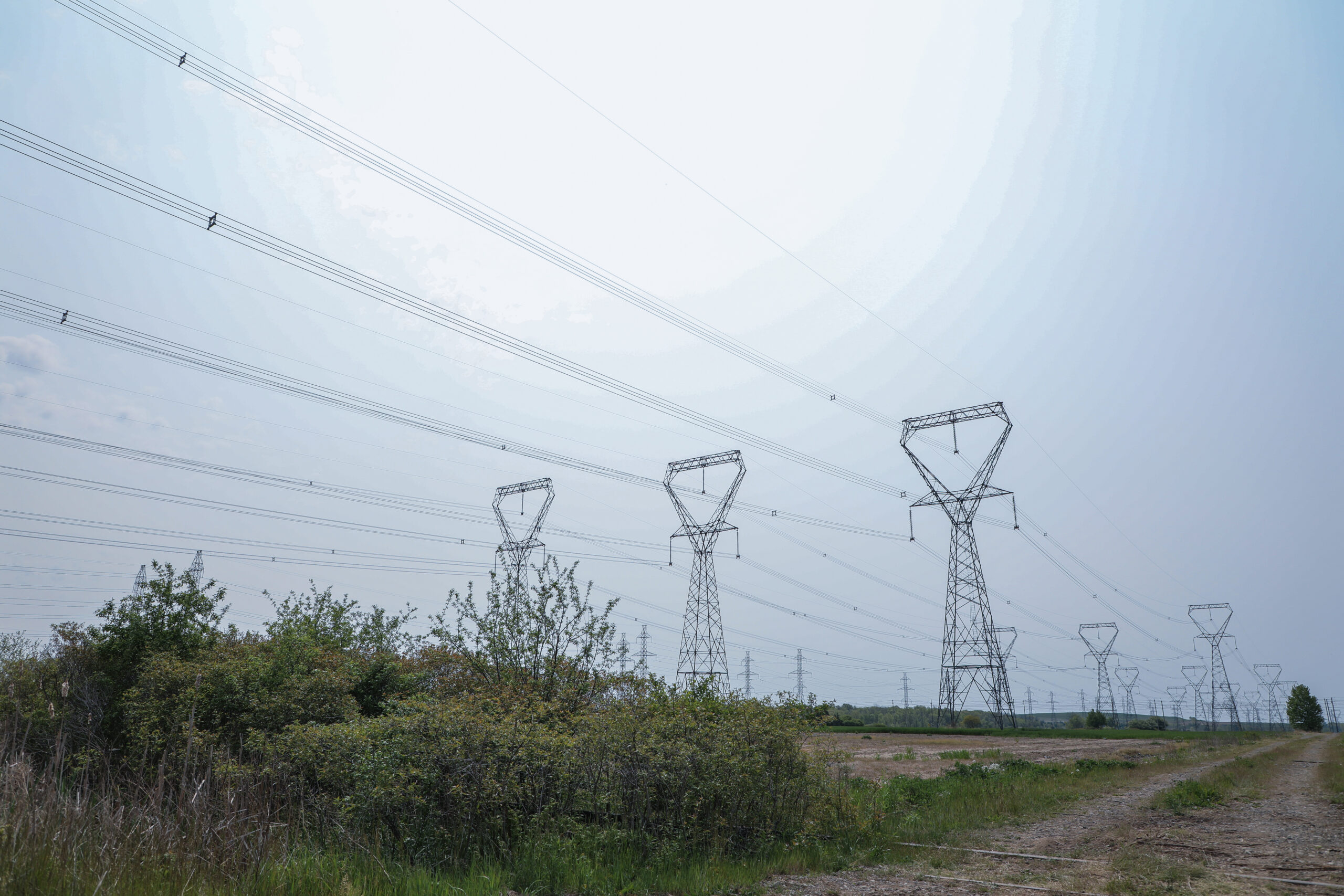
This decision was the first of a three-part look at Enbridge Gas’ plan for Ontario. The board has asked the company to provide a plan for how it will avoid creating a whole system of stranded assets. The Ontario Energy Board told The Narwhal the dates of the next hearings have not yet been set.
The Ontario legislature is currently closed for winter break. The government will resume its legislative sitting in February, which is when further details about the minister’s response to the board’s decision will likely be released.
Get the inside scoop on The Narwhal’s environment and climate reporting by signing up for our free newsletter. On a warm September evening nearly 15...
Continue reading
Between a fresh take on engagement and our new life on video, our team is...

The public has a few days left to comment on Doug Ford’s omnibus development bill....

115 billion litres, 70 years to fix, $5.5 billion in lawsuits
